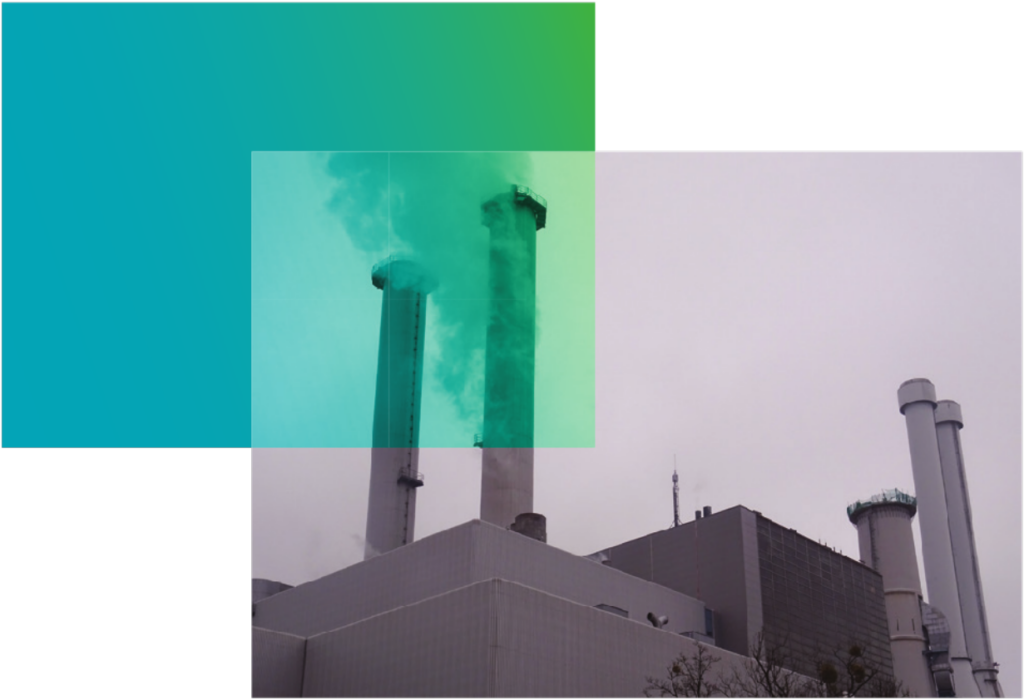This is a semi-automated translation of our original document.
The consequences of climate change have been felt around the world in recent years – fortunately, so has the movement to save the climate. More and more people are realizing that it is our way of doing business that has plunged us into the climate crisis, and are ready to fight back.
The climate movement is diverse, creative and resistant. It manages to bring countless people from diverse backgrounds together and into the streets. Despite this, political steps that adequately curb greenhouse emissions are still a long way off. In many parts of the movement, there is frustration and a sense of powerlessness. Despite millions of people on the streets, little seems to change.
We have come together as a new group called „Aktion Klimakampf München“ because we see these problems and want to find answers together. What is needed, in our opinion, is organizing. Actual, binding organizing, where we agree on common analyses and goals, join together for the long term, and build a counter-power to the ruling system. In our first publication, we formulate our substantive and organizational principles in ten theses.
1. There can be no such thing as „green capitalism“
The prevailing economic system, capitalism, is inextricably linked to the impending climate catastrophe and the destruction of our livelihoods. The driving forces in this system are the urge for permanent growth and the evaluation of every economic activity from the perspective of profit maximization.
These drives will always trump all other conceivable goals, such as climate protection. This is because capitalism is based on the principle of competition: In order to survive on the market, every corporation must sell more than its competitors – and make greater profits than they do. To do this, it must constantly increase the efficiency of its production. If it did not do this, it would be outcompeted and driven out of the market.
Because their profits come from the exploitation of people and nature, the owners of the corporations always strive to increase this exploitation: By lengthening the workday or intensifying labor; by overfertilizing soils, factory farming, or burning fossil fuels. Even „greener“ technologies must function within the capitalist system and are thus subject to the same constraints of growth and profit. It is illusory, for example, that renewable energy can succeed in time in a market dominated by the monopolies of fossil capital.
Thus, the growth of the economy necessarily means growth in greenhouse emissions and destruction of natural resources. It is impossible to decouple these mechanisms from each other to any relevant extent. Thus, the climate crisis will not be averted by regulations and incentives for climate protection. Capitalism cannot be reformed. We have to overthrow it.
There are many progressive struggles for climate justice within this system as well, and we want to support them. However, we must always point out in our analyses the barriers imposed on us by the property relations in capitalism and point beyond the existing system in our responses.

2. For a union of the workers‘ and climate movement
In the final analysis, the fight against climate catastrophe is a fight over the use of society’s wealth. Because those who choose again and again to put their profits above the future of our planet draw the power to do so from their wealth. The wealth that the rest of humanity works for them every day.
Today, just as a hundred years ago, our society is divided into those people who own the means of production, i.e. the factories, fields and power plants – and those who can only sell their labor power. For the former can decide what and how we produce – and for their profits this production takes place. The vast majority of people, on the other hand, have no share in society’s wealth and no right of co-determination.
This relationship between capital and labor separates society into different classes: the owning class and the working class, which are in objective contradiction with each other. „Objective contradiction“ in this context means that the propertied classes make their profits at the expense of the working class, while any success of the working class in its struggles for higher wages, more leisure time, more climate protection, or other socially progressive uses of wealth must be fought for against the interests of the propertied class.
Just like the struggles for the 8-hour day or against child labor, the struggle against the climate crisis is a class struggle. For it is about the question in which way production should take place. While the working majority and their children feel the full consequences of the climate crisis, the owners and investors of the large corporations can largely escape the effects of the catastrophe.
But since it is the working people who keep the corporations, the power plants and the assembly lines running, they have the power to enforce their demands through the means of the strike. In the past, the ruling class has made great efforts to contain and prevent this means of struggle. Through social partnership, the law on collective bargaining unity and the ban on political strikes, as well as through division and bribery. We see freeing the strike from this containment as an important part of any revolutionary politics.
The struggle against the exploitation of nature and people belongs together. It is clear to us that within this system and its logic there are contradictions between the workers‘ movement and the climate movement. The coal phase-out threatens coal workers with unemployment and a lack of perspective, just as the traffic turnaround does to workers in the automobile industry.
We look at every question from a class perspective and concretely support the struggles of our class. The demands for conversion and reduction of working hours play an important role in this. But it is equally important to show that the contradictions between the climate movement and the workers‘ movement exist only within the logic of the capitalist system and can be resolved in the common struggle against it.
3. We need an awareness of the role of the state
In capitalist countries, it is the supreme task of the state to maintain property relations and to increase national economic growth vis-à-vis international competition.
When the federal government covers up for car companies in emissions scandals and gives them scrapping bonuses, pumps billions in subsidies into climate-damaging agriculture or helps out companies like Lufthansa with billions in the crisis, it does so to give these companies an advantage on the world market. Environmental protection and workers‘ rights, on the other hand, are usually disadvantages compared to international competitors and can only be fought for against the resistance of capital.
The logic of capitalist competition exists not only between corporations but also between nations, forcing all governments to act according to these principles. Internationally, the ruling class ensures the subjugation of all states and governments to the dictatorship of profit with institutions such as the World Bank, IMF and rating agencies. Leftist governments that oppose this principle are attacked either covertly through sanctions and embargoes or openly with military interventions. Individual capital factions also have direct mechanisms at their disposal, such as open and covert bribery, to draw politicians and institutions to their side.
Thus, the role of the state is always on the side of capital. It only makes concessions to the climate movement to the extent that it can reconcile them with its goals – or if it is forced to do so. For example, through pressure from the streets or in the factories.
Appealing to the state will therefore not bring us any closer to our goal. Effective climate protection can only ever be implemented against the bourgeois state, never through it. As a direct consequence of our understanding of the bourgeois state, we refuse to address parties or governments with requests or appeals.
On the contrary, the past has clearly shown that successful social or environmental movements, beyond a certain point, are seen as opponents by the state and are fought against. Therefore, we need to set up our actions and organizing in a way that does not make us dependent on either bourgeois rights or state institutions.
In order to pre-empt state repression, we believe it is necessary to organize in a way that makes it difficult for the state to gain insight into the structures. At the same time, however, mass mobilization and responsiveness is a prerequisite for our success as a movement. We have to fill this contradiction with life through different forms of organization and open possibilities of participation.
4. International solidarity means struggle against national capital
Capitalist exploitation does not stop at national borders. The big monopolies have long since extended their influence to the whole world. They are supported and protected by their national governments, which defend the interests of their corporations even in the remotest corners of the world by means of economic and military wars.
By exporting capital, i.e., buying up infrastructure and production facilities in other parts of the world, the large corporations of the imperialist centers have taken possession of large parts of other countries. For example, French energy corporations are earning money from uranium stocks in Niger, German meat corporations from the deforestation of the rainforest in Brazil, and American energy corporations from the oil deposits of Arab countries.
Especially since the climate crisis has set more and more people in motion, the big corporations and their states use the imperialist exploitation of other countries to present a green image at home. For every hectare of rainforest that is cut down, a tree is planted in Germany. The outsourcing of one’s own dirty production to other, economically dependent countries is presented as a step towards national climate neutrality.
While the imperialist centers are responsible for most of the emissions, the effects of the climate crisis hit especially the parts of the world they exploit. And so the rising tides are driving ever larger masses of dispossessed people from the exploited countries to flee. At the same time, at the edges of the imperialist centers, upgraded border regimes are creating barriers. An important part of the climate struggle is therefore the fight against these borders, the racist division of society and the policies of suppression and deportation of refugees that are facilitated on their basis.
We stand in solidarity with all progressive movements worldwide. The fight against the climate crisis cannot be won in the national framework. We want to make the international resistance against the climate crisis and its effects and against imperialist exploitation and wars visible and support it practically where we can. However, international solidarity for us means first and foremost the intensified struggle against German imperialism. Our actions therefore focus on the responsibility of German capital for crimes in other countries: the main enemy is in our own country.

5. Technology is not our enemy, but in the hands of the enemy.
Advances in science and technology have opened up tremendous opportunities for mankind. Through them, it has become possible to create a world without hunger and scarcity, to defeat diseases, and to ensure the supply of all necessities to billions of people. The only thing that stands in the way of this is whose service this technology is in. For, like everything else, technology in this system serves not the satisfaction of human needs, but the accumulation of capital.
At the same time, this is also the reason why a „technical“ solution to the climate crisis is impossible within the prevailing conditions. Many possibilities for sustainable and low-resource production have been available for a long time, but are not or hardly applied because they contradict the goals of steady growth and accumulation. For example, natural resources such as wind or sunlight cannot be sold as commodities like oil or coal and are therefore less interesting to capitalism. Durable devices or materials contradict the imperative to sell as many commodities as possible.
Approaches that claim the problem of climate change and environmental degradation can be solved within the system by reducing growth are therefore doomed to failure. Growth is integral to capitalism. Even short periods in which GDP does not increase mean profound crises. This is because no growth also means no prospect of profits to come and therefore no incentive to invest.
Technology is therefore not our enemy, but in the hands of the enemy. In order to make good use of it, we must democratize it. We are fighting for the conversion of industries like energy or transport to sustainable and collective solutions. The problem is not the advancement of technology, but the unsocial handling of conversions under capitalism. We are not technophobic in our demands, nor do we believe in the purely technical solution to the climate crisis. In our struggles, we must always make clear what the real core of the problem is: the property relations that prevent the actual unfolding of human progress.
6. The problem lies not in consumption but in production
Big companies have long since found ways to make money out of people’s need to stop global warming. Various labels and seals are supposed to suggest environmentally friendly production – and yet usually only conceal the environmental destruction that continues in other ways.
At the same time, politics and capital exploit the need for conscious consumption to shift the responsibility of the climate crisis and environmental destruction onto the individual: instead of a ban on factory farming, they want to talk about a vegetarian cafeteria day; instead of a change in traffic, they want to talk about our vacation habits. The oil company BP has invented the „Carbon Footprint Calculator“ with which people can calculate „their CO2 footprint“ in order to suggest that emissions have their roots in individual consumption instead of the harmful production of goods and energy.
Thus, the state and capital claim that the solution to the climate crisis is being hindered by „undiscerning consumers“ rather than by themselves and their system. In doing so, they drive a wedge between the climate movement and all those who cannot afford „conscious consumption.“ But the problem is not in consumption – it is in production. As long as this is focused on generating profits rather than meeting societal needs, nothing will change in terms of CO2 emissions.
Instead of promoting the purchase of (often very expensive) environmentally friendly products, we need to stop polluting production. Instead of making people in small villages without rail access feel bad about driving, we need to expand mass transit. Changes in our way of life, which will be necessary to protect the climate, should be consciously decided by society as a whole and not individualized and non-binding. We can already try this out on an everyday basis – through a common practice that is not limited to fighting on the streets, but includes building and promoting counterculture.
We counter individualization through the ideology of consumer critique with the collective construction of counter-power. Running consumption-free spaces, cooking vegan meals together, and helping each other repair appliances can be part of the necessary counterculture from which we develop our resistance. At the same time, we propagate the common struggle for social change instead of ineffective appeals to „individual responsibility“.
7. We need democratically organized production
Poisoned rivers. Slash and burn in the rainforest. Factory farming. Behind all these phenomena are active decisions made by shareholders and capitalists in the competition for the largest profit margin. This is made possible by the property relations that are at the core of capitalism.
However, a society that wants to counteract the climate catastrophe must be a society in which production is for the needs of the people and not for profit. To make this possible, it is necessary to suspend the principles of competition and private appropriation. We must therefore transfer the means of production – the factories, fields and power plants – and the infrastructure into the hands of society. To do this, we must expropriate their owners.
Only if, for example, the decision-making power over the entire transport or energy sector is in the hands of society, can we democratically make the necessary decision for the transport or energy turnaround and also implement it. However, individual nationalizations are not sufficient in this regard: Within the capitalist system of competition, state and municipal enterprises are also subject, at least in part, to profit pressure and competitive pressure. Therefore, we must take all production out of private, competitive hands and transfer it to social ownership.
We fight for a planned economy in which prioritization, type and content of production are decided democratically. Always with the goal of providing the best possible life for all people while protecting nature and the climate. In our struggles, we highlight property relations in capitalism and advocate for expropriation and against privatization. In doing so, it is important to us that demands for a planned economy become concrete. We have to deal critically and openly with historical experiences and international examples, instead of just talking about an abstract „system change“.

8. Overcoming division, supporting emancipation movements
In our society, multiple lines of division prevail, such as gender, skin color, origin or religion. Behind them are real relations of exploitation and oppression, under which a large part of humanity suffers. The resulting ideologies divide all those people whom we need to unite in the common struggle for a climate-just and classless society. Therefore, addressing divisive ideologies and discrimination is not only an important goal in itself, but also a political and factual necessity for the climate struggle.
The most important means against division and oppression is common struggle. We stand in solidarity with all movements in which people unite against their exclusion, suppression and discrimination. In doing so, we are aware that these mechanisms of division leave their mark on all people, including us. We take targeted and collective action against regressive, discriminatory behavior within our own ranks and the climate movement as a whole.
9. Making counter-power tangible
The basis of every social order is the production and property relations that prevail in it. The ideology of the ruling class was and is always aimed at justifying and cementing these relations.
Because one’s life takes place within the given relations, people tend to accept these relations and their justifications as right or necessary in times when the system is stable. Just as in the feudal society of the Middle Ages the God-given world order appeared as natural, today competition appears as an unchangeable part of the human character. Only when the system becomes fragile do fundamental alternatives become conceivable, even for the majority of people.
We are not helplessly at the mercy of the course of history, but are in a position to actively influence conditions and thus determine our own fate. However, this can never happen on the substantive, ideological level alone: We have to make our power to change something tangible in real terms, and thus create awareness for alternatives to the prevailing conditions.
Real struggles and experiences of collective action have a higher persuasive power than theoretical arguments. We are therefore concerned with leading struggles instead of just talking about them. Through protests on the streets and in the workplaces as well as by building counter-power and counter-culture. This is how we can intervene in history.
10. We need a binding organization with clear goals
Only the abstract goal of a climate-just society is not sufficient for our struggle: In order to be able to act effectively, we need a collective agreement on what needs to be done and where exactly we want to go. Because only if we work together on the same strategy can we make it happen.
We don’t want to simply let different views stand side by side, but rather discuss them out. The different experiences and expertise in the climate movement can be our strength if we combine them to find the right way together. On the other hand, we do not believe that a juxtaposition of different approaches and goals, as is common within many organizations in the climate movement, makes sense.
Attacking capitalism, averting the climate crisis, these are not easy tasks. Therefore, when we join together, we need a high level of mutual trust and commitment. Within our organization, but also in cooperation with others, we adhere to the principle that joint decisions are implemented collectively by all.
At the same time, it is clear that none of this can be developed in an empty room or at a desk, and no analysis or strategy is ever perfect. Different places and moments require different tactics and focus. Our aspiration is to constantly test our content and approaches against reality – by evaluating practical work, analyzing and correcting mistakes, and discussing them among ourselves and within the climate movement. For us, theory and practice belong inseparably together.
